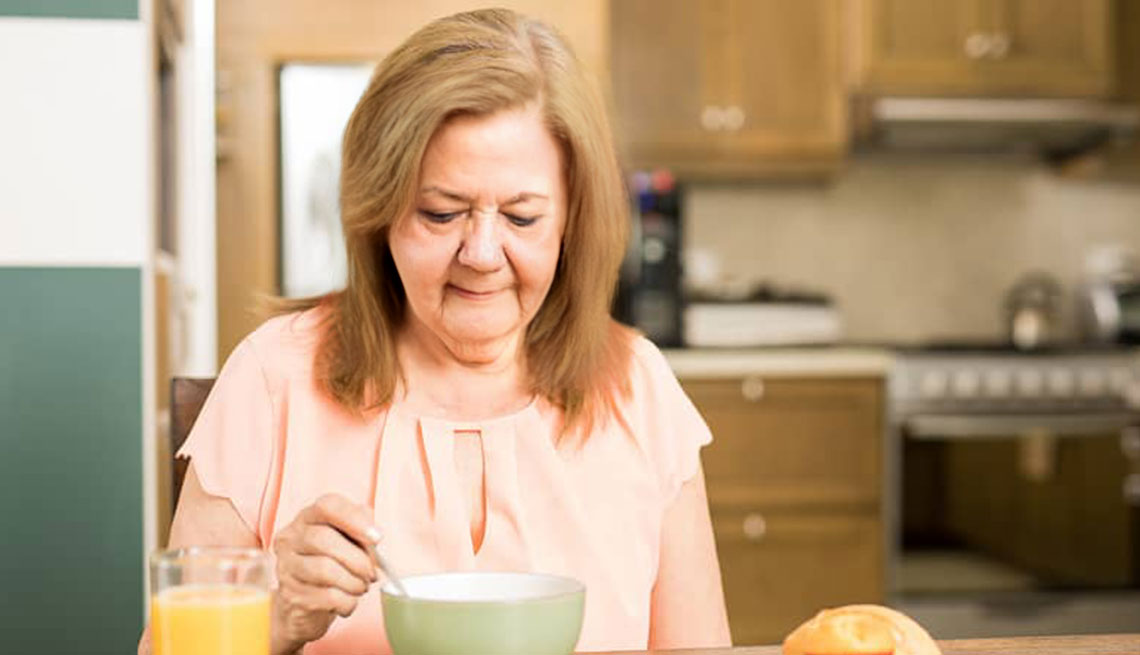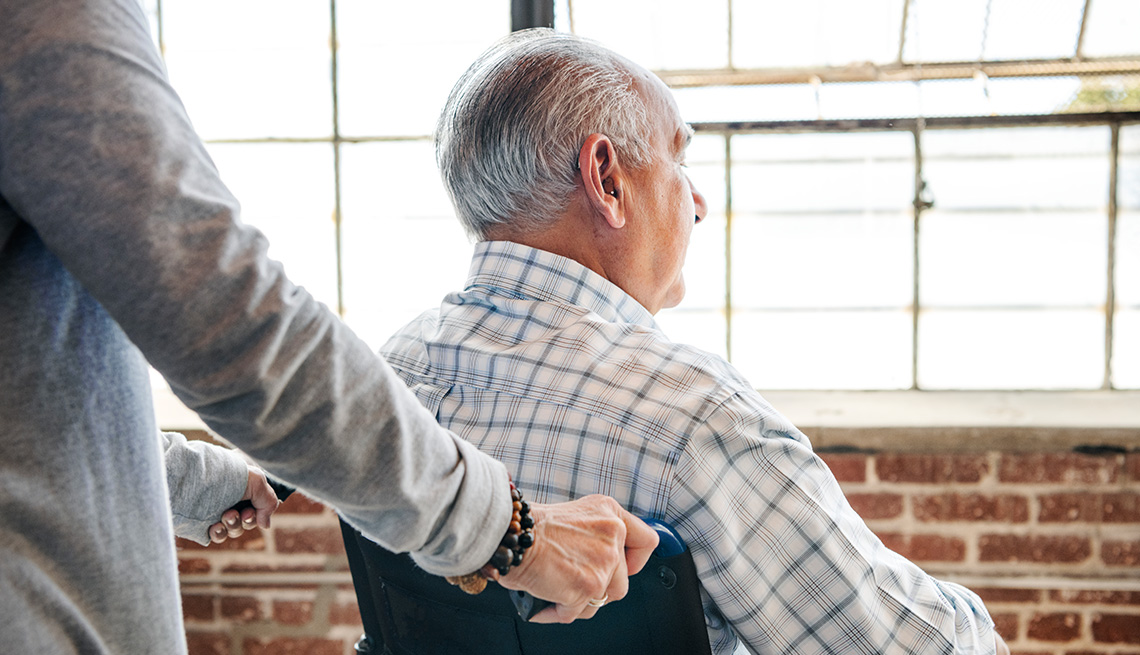Why is that? I believe it’s because we put off making change. We cling to material possessions that were part of our pasts. We don’t look at aging as a time to look forward, but a time to look backward. We don’t assign a priority to preparing our homes to meet the needs of our new lives.
Actually, moving into the senior years less burdened by material possessions brings about a certain amount of peace and happiness. We look forward to many things as we age: grandchildren, retirement, hobbies, friends, etc. One thing we all seem to dread is downsizing or getting rid of “stuff.”
Even if we are just housecleaning, the process of sorting and going through household items can be overwhelming. When we contemplate moving, it adds a layer of emotional turmoil in anticipation of life changes. We tend to put off that sorting and organizing until the very last minute. We risk being forced into it under adverse conditions of time and poor health. In most situation, it’s left to the children or even strangers to do the job for us, if we wait too long.
Don’t put it off! Make it a joyful event. Your emotional and physical health and well-being will be enhanced living in a simpler, pared-down environment. In addition, if you decide to move later, the job will be much easier. It’s popular now to age-in-place when we can. Caregivers come to our homes to help with personal care and light housekeeping. They will appreciate your efforts at simplifying your home now so their job is easier down the road. Make a plan now to get started.
Early in retirement is a perfect time to go through all the memories and possessions you have collected over the years by sorting and categorizing all of them. Start with your family photos. While you are enjoying the memories, think about which pictures you want to keep and which to give to the kids or other relatives. Store the ones you keep in photo albums or digitally. Leaving them in paper boxes for the family to go through later is stressful for them.
On a different day, go through a closet, a chest, a kitchen cabinet or a whole room. Don’t do too much each time so you don’t get too tired or overwhelmed. Pace yourself, but set goals so you actually move forward. Look at this time of sorting and remembering as a way to reaffirm your favorites, keep what matters and move the rest out of the house.
You can offer items to your children or friends, have a yard sale or donate to a variety of charities that work to help others less fortunate in your community. Sharing is a good thing! Asking your children to help offers them the chance to ask questions and make notes on family history. Or, you can ask a friend or pay a helper.
If you have a parent or another loved one who is living in a cluttered environment, perhaps the best gift you can give them (and yourself) is to help them go through the process of paring down. It can be a special time of bonding and sharing while you work and the end result is so worth it, for both of you.
The goal is never to force anyone to throw out memories but to encourage everyone to keep only those things they feel confident they will continue to enjoy and use on a daily basis. While we are still active and healthy, paring down will simplify our lives and housekeeping efforts allowing more time for hobbies. Later, If/when we need homecare, the caregiver can get more done in an uncluttered environment. If moving is a possibility down the road or if your health fails suddenly, the transition will be much easier for you and your family.
Here are some ideas to help you:
- Work Room by Room, or Category by Category
Make piles: (1) give away, (2) donate, (3) sell, (4) throw away, (5) keep. If you’re not sure where to begin, remember it’s easier to work with a friend. Ask for help! If you have things stuck in closets or cabinets you haven’t seen or used for years, you can start with one closet or one cabinet. It’s time to release those items to a new home.
- Move Items Along
Schedule a time for family or friends to pick up items you’ve gifted to them. Friends and family may help deliver items to charities, while some charities will pick up items.
- Gather Supplies
You will need storage bins, boxes, plastic bags, trash bags, labels and markers.
- Furniture
Now is the time to get rid of excess furniture that no longer serves you well, blocks walkways or may be too large or heavy for the area. As we age, we need to consider that, at any moment, we may need a walker or a wheelchair. Look at your room arrangements with a new eye. If you can’t move through your space comfortably using a walker or wheelchair, rethink your space. Also consider if you can get up and down easily from your chairs, sofa or bed. If not, what can be done to make this easier for you? Habitat for Humanity is will pick up your spare furniture to help your community.
- Kitchen
After raising a family and/or entertaining a great deal, you have probably accumulated quit a stock of kitchen supplies. Even if you love to cook, keep in mind that you will probably spend more time traveling, visiting with family, cooking for one or two, or perhaps not cooking at all.
Ask yourself some hard questions:
- Will you need all the canning supplies if you don’t plan to raise a garden now?
- Will you need two sets of dinner wear if most holidays will be spent with the children in their homes? Consider keeping only one set and add some paper products for spare.
- Will you need all the bakeware if your travels prevent you from baking every day as you once did?
- Do you need the donut maker or is it time to pass it on to the grandkids?
- Will you cook enough to keep the table mixer or will a portable work now?
You might consider keeping only the basics:
- One set of pots and pans with lids
- Most Common Utensils (spatula, mixing spoons, ladle, can opener, etc.)
- One set of drinking glasses.
- One set of dishes
- A few serving dishes
- Coffee cups/saucers or mugs
- One set of silverware
- Mixing bowls (set of two)
- Set of measuring cups/spoons
- Hot Pads
- Coffeemaker
- Electric Mixer
- Cookie Sheets (two)
- Cake Pans (2)
- Colander
- Cooling Rack
- Roaster
- Toaster
- Other items that seem important to you.
- Go through all spices and staples. Dispose of old ones and keep only those you use on a daily basis.
- Organize and update cleaning supplies
- Go through all the old polishes and cleaners you no longer use.
- Replace your dust mop or wet mop/bucket for a modern, easy to use choice.
- Replace your broom with one that includes an attached long-handled dust pan to avoid stooping
- Consider a light-weight, easy to navigate vacuum.
- Place a convenient laundry hamper near where you change clothes
- Trade your laundry basket for a light weight, easy carry model.
- Stock Surface wipes, dusters and paper towels
- Consider using cotton dish towels and dish clothes for easy laundry
- Stock Window, Bathroom and All-Purpose Cleaner
- Stock Laundry Detergent/Dryer Sheets/Spot Cleaner/Bleach
- Stock Dish Liquid and/or Dishwasher detergent
- Bathroom
- Now is the perfect time to install hand rails for safety.
- You only need 2 Sets of Hand towels for each bathroom
- You only need 4-6 Bath towels for each bathroom
- Personal care items – Buy only sizes you need as giant sizes may not be feasible now. Keep only the items needed.
- Toothbrushes
- Deodorant
- Shower Soap
- Hand Soap
- Body Lotion
- Shampoo/Conditioner
- Shaving Equipment
- Blow-Dryer – Curling Iron
- Hair pins and other hair items
- Make-up or Cosmetics
- Brush/comb
- Medications (dispose of old medications)
- First-aid supplies (dispose of dated first-aid supplies)
- Incontinent or other personal supplies
- Toilet paper/paper towels
- Toilet bowl brushes for each bathroom
- If you have a guest bathroom, prepare a basket of individual personal items such as shampoo, conditioner, body lotion, toothpaste, spare brushes, etc. so you don’t have to keep huge bottles on hand.)
- Clothes, decorative items, entertainment and personal items
- Look at all these items with a keen eye towards usefulness.
- Do you need three winter coats if you live in an area where it seldom gets cold?
- Do you need to keep ten pair of high heels from your work days when now you wear only comfortable flats and tennis shoes?
- Do you need the bowling ball you haven’t used in ten years?
- Do you need all the old CD’s when you only use digital music products now?
- Do you need all the books you have read and re-read?
- Do you need the exercise equipment you stored in the garage when you now use the gym with your friends?
- Lawn Care and Garage
- At some point, you may want to consider hiring a lawn care service. In my neighborhood, the cost of hiring a lawn service to mow/trim can be less than the cost of lawn equipment and fuels. That leaves you time/energy to plant a few flowers or cook on the grill. It also means you can gather up all that equipment and donate it to Habitat to Humanity.
- Do you actually work on the car now? Perhaps the tools can be pared down.
- What’s in those boxes you put on the shelf ten years ago?
- Will you put up the big Christmas Tree or would you enjoy a table model that is easier to put up/take down and store?
The ideas above are just a few to get you started thinking about how to simplify your life. Each decision you make about what to keep and what needs to go will be difficult. But if you spend the time doing it now, you’ll feel so much lighter emotionally and it will free you up to pursue other activities you will enjoy. Enjoy the process!
Author
Judy Harrison (judy@pom.care)










